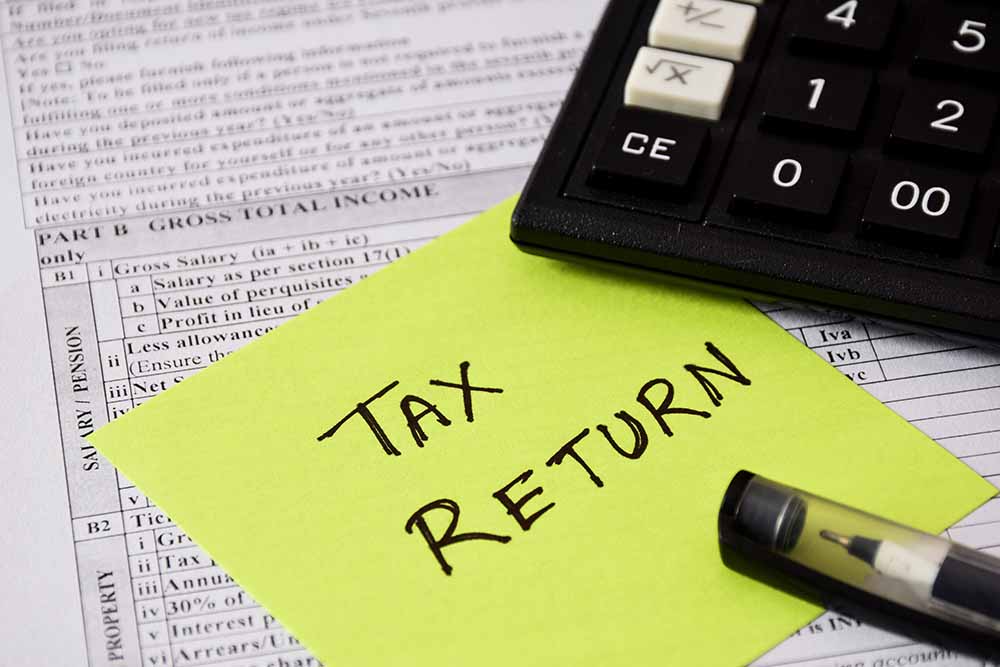The end of July has everyone calling up their CAs to file their taxes. However, before you make that phone call—and make that extra, unnecessary payment—take a moment to learn about the kind of taxes you are eligible to pay and learn to do it on your own. Trust us; it’s easier than asking your HR for your Form 16!
How Much Tax Do You Need To Pay?
You need to file your Income Tax Return (ITR) if your total gross income exceeds the basic exemption. The basic exemption limit for the financial year 2021-22 is ₹2,50,000. So if your gross income from all sources is more than that number (annually), you need to file your ITR. The percentage of tax you need to pay depends on your income: For people who earn between ₹2,50,000-₹5,00,000, you need to pay 5 per cent tax. For ₹5,00,000 to ₹10,00,000 you need to pay 20 per cent tax, and for ₹10,00,000 and above the tax is 30 per cent. All individuals are liable to pay an additional 4 per cent health and education cess on their total taxable amount
What Are The Benefits Of Filing My Taxes?
We get it: seeing a massive chunk of income getting debited from your account can be painful, but there are multiple reasons why you need to file your ITR. The first (and the most important one) being, it is the law! You will be liable to pay a penalty of up to ₹10,000 to the government for non-payment or late payment of your taxes. In dire cases, the fraud can also lead to imprisonment, with the term varying between three months to two years.
You can also claim a refund of your TDS that your employer deducts (remember that colossal sum you see as a dedication on your salary slips every month? Yes, you can get that back in some instances). If you are planning to take a loan, you will need to show your tax records. Similarly, if you are applying for a visa to any other country, you need to submit your ITR as one of the documents.
If your income doesn’t fall under the taxable slab, it is still advisable to file your returns (you will not have to pay anything).
How Can I Save Tax?
Provisions under Section 80 of the Income Tax Act allow you to claim certain deductions and save on the overall tax you need to pay. For example, you can claim an exemption of ₹25,000 on the premium paid for your health insurance policy. Additional deductions are available if senior citizens are covered in the policy– ₹25,000 if your parents are below 60 years of age and ₹50,000 for parents above 60 years.
You can reduce your taxable income up to ₹1,50,000 by making tax-saving investments like life insurance premiums or on expenses like school tuition fees, fixed deposits in the bank, Public Provident Fund deposits (PPF), investment in National Pension Scheme (NPS), Employees Provident Fund (EPF) and Equity Linked Savings Schemes (ELSS).
What Do I Need To Know Before Filing My Returns?
You need a Form 16 (in case you are a salaried employee) or Form 16A (in case of other income) to check the amount of TDS that has been deducted while making your payments. Also, check 26AS, which is your Tax Credit Statement, to ensure that the correct TDS has been deducted and deposited to the government.
You need to fulfil specific conditions for a particular expense to be considered a tax deduction. Your LIC premium, children’s tuition fees and home loan repayment are some expenses that can be claimed as a deduction.
If your income is below ₹5,00,000, the IT Department allows a rebate of ₹12,500 that can be used to reduce the amount of tax you need to file.

How Do I File My Taxes Online?
You can file and submit your ITR through offline or online methods. To file your taxes online, log into the government’s e-filing portal. You will be required to create an e-Filing profile before filing your taxes.
The ITR form has five sections that you need to fill out. In the Personal Information section, you need to verify your contact details, tax filing type and bank details. The second section is your Gross Total Income—you need to verify your income source (salary, pension, house property, interest income, family pension, etc.) and add details about any tax exemption you are eligible for.
Next, you must add and verify any deductions you wish to claim. In the tax paid section, verify the taxes paid by you in the previous year. This is where you include details of your TDS from your salary, advance tax and self-assessment tax.
The last section is the Total Tax Liability, where you need to review the tax you need to pay. You may not always need to pay the taxes. If you’ve made the correct investments and have exemptions, the amount can come to zero, and you can often be eligible for a refund. Irrespective of whether or not you have to pay any amount, it is crucial to file your returns. If you qualify for a return, you will get a refund from the government after you file your returns.
Documents To Keep Handy While Filing Your Taxes
-Bank and Post Office savings account passbook (updated)
-PPF account passbook
-Salary slips
-Aadhar Card, PAN card
-Form-16, Form-16A
-Form 26AS
-Proof of tax-saving investments like health insurance premiums, interest on education loans, etc.
Go on, file your taxes on your own, and take charge of your finances.